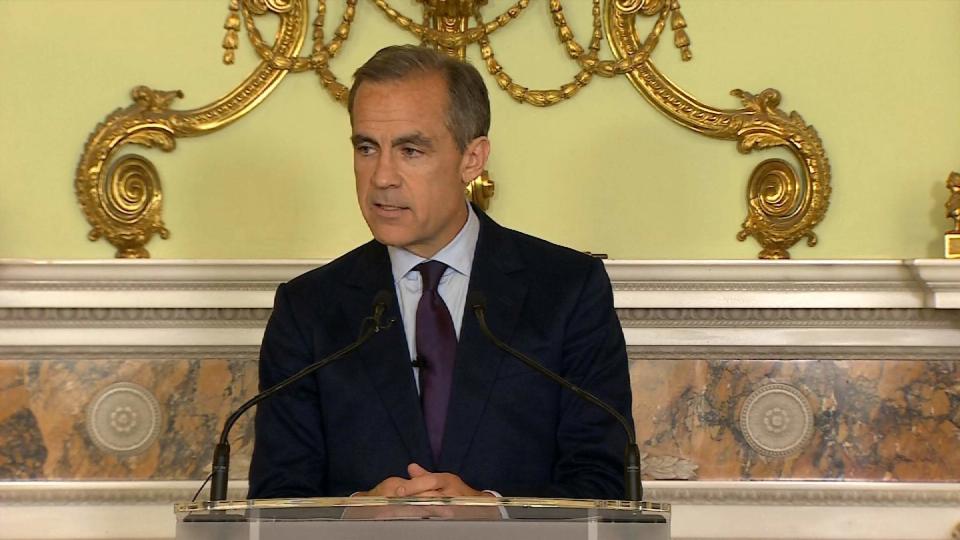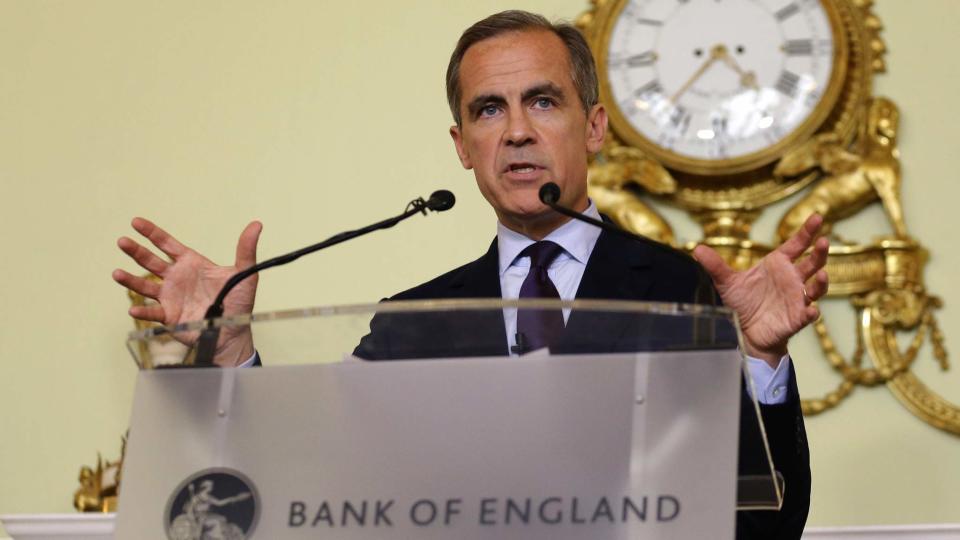Carney Signals Possible Interest Rate Cuts
The Bank of England governor has hinted at interest rate cuts as "monetary policy easing will likely be required" in the summer.
In a speech at the Bank of England, Mark Carney said the uncertainty over Britain's exit from the European Union - which he described as "a major regime shift" - had forced the bank to consider monetary stimulus over the coming months.
Mr Carney said that Britain's economic outlook had "deteriorated" as a result of the vote to leave the EU and that, at a meeting on 14 July, the bank's policymakers would make an initial assessment.
In August they will "also discuss further the range of instruments at our disposal", he added.
:: LIVE: Pound Falls As Carney Speaks On Brexit
The benchmark interest rate is already at a record low of 0.5% and Mr Carney gave a warning that there were limits to how low rates could go.
He said: "As we have seen elsewhere, if interest rates are too low or negative, the hit to bank profitability could perversely reduce credit availability or even increase its overall price."
Another option for the bank would be to pump more money into the financial system.
The bank may ramp up its bond-buying programme under which it amassed a stockpile of £375bn worth of government debt after the financial crisis.
The pound fell sharply on news of more monetary stimulus, which tends to weigh on a currency. It was down to US$1.3295 from US$1.3429 before Carney's comments.
Shares were up more than 2% at the FTSE 100 surged to its highest level since December after the speech, which comes just days after the yield on 10-year British government bonds fell below 1% for the first time and after the pound fell to a 31-year low on Monday.
Mr Carney said contingency measures that were planned by the bank and Britain's Treasury to deal with market shocks before the referendum, were "working well".
He did warn, however, that the central bank could not eliminate the shock of the referendum result alone, adding that prospects for economic growth would be driven by "much bigger decisions; by bigger plans that are being formulated by others".
He added: "Uncertainty over the pace, breadth and scale of these changes could weigh on our economic prospects for some time.
"While some of the necessary adjustments may prove difficult and many will take time, the transition from the initial shock to the restructuring and then building of the UK economy will be much easier because of our solid policy frameworks."
Mr Carney said the uncertainty had contributed to "a form of economic post traumatic stress disorder" among households and business.
He added: "People have come more cautious about their futures, and more averse to making irreversible decisions that may be exposed to future disaster risk."
But he did add a positive note, saying: "the UK can handle change...It has one of the most flexible economies in the world and benefits from a deep reservoir of human capital, world-class infrastructure and the rule of law.
"Its people are admired the world over for their strength under adversity. The question is not whether the UK will adjust but rather how quickly and how well."

 Yahoo News
Yahoo News 

